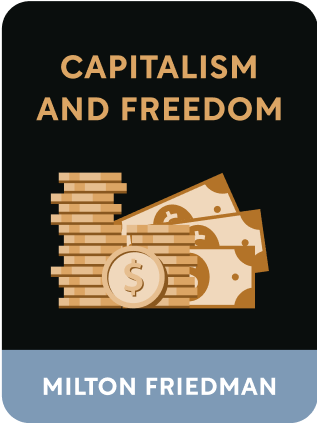

This article is an excerpt from the Shortform book guide to "Capitalism and Freedom" by Milton Friedman. Shortform has the world's best summaries and analyses of books you should be reading.
Like this article? Sign up for a free trial here .
What is a public monopoly? Are public monopolies bad for the economy?
A public monopoly can occur when the government directly produces goods for sale. A true public monopoly is uncommon in the U.S., but it can occur when government exerts control over the private sector.
Read more about the public monopoly and how they affect the economy.
What Is a Public Monopoly?
As we’ve seen, the private sector is not really the source of most monopolistic behavior in the United States. Instead, monopolies are most prevalent in those industries that are most heavily controlled by the government.
Public monopolies can occur when the government directly produces goods for sale. Because they are taxpayer-supported and don’t need to earn a profit to stay afloat, these government monopolies can easily undercut private competitors. Examples of this form of government monopoly include the post office and the construction and maintenance of roads and highways.
But in a capitalist economy like the United States, there are few examples of the government directly providing services for sale of which it is the sole provider. Instead, a more common form of public monopoly is when the government uses its regulatory authority to entrench private firms and lock out potential competitors within a particular industry.
In the United States, for example, many utilities like water and electricity are provided by “public utilities,” which are effectively private monopolies backed up by government subsidy and regulation. Historically, other examples of these mixed public-private monopolies have included:
- Agricultural price supports (where the government establishes price floors for certain agricultural commodities by paying farmers not to grow them);
- The Civil Aeronautics Board (which effectively allowed only a few major carriers to provide commercial air service, before it was abolished in the first wave of deregulation in 1978); and
- The Federal Communications Commission (FCC), a government agency that controls the airwaves and determines which private operators are licensed to broadcast.
Tax Policy and Monopoly
Governments have a number of tools at their disposal to reduce private competition within an industry. Tariffs, for example, tax imported goods and services and make it more difficult for foreign firms to compete. This enables domestic firms to gain a competitive advantage that they might otherwise lack, but leads to less choice for consumers.
Private monopolies or near-monopolies also benefit from poorly designed features of the US tax code. For example, corporate, capital gains, and dividend taxes all disincentivize shareholders from putting corporate profits toward new investments. Because investors face a tax penalty when they sell stock or collect a dividend, it is often a better option to simply plow money back into an existing large company by purchasing more shares. This chokes off investment into other ventures that might be more productive and yield a higher rate of return.
The effect is to protect large incumbent businesses by giving them the lion’s share of available capital, even when they have little productive use for it.

———End of Preview———
Like what you just read? Read the rest of the world's best book summary and analysis of Milton Friedman's "Capitalism and Freedom" at Shortform .
Here's what you'll find in our full Capitalism and Freedom summary :
- The key principles from Milton Friedman's Nobel Prize-winning book
- Why capitalism functions best when it is freed from government restraints
- How forced redistribution schemes are morally unjust






